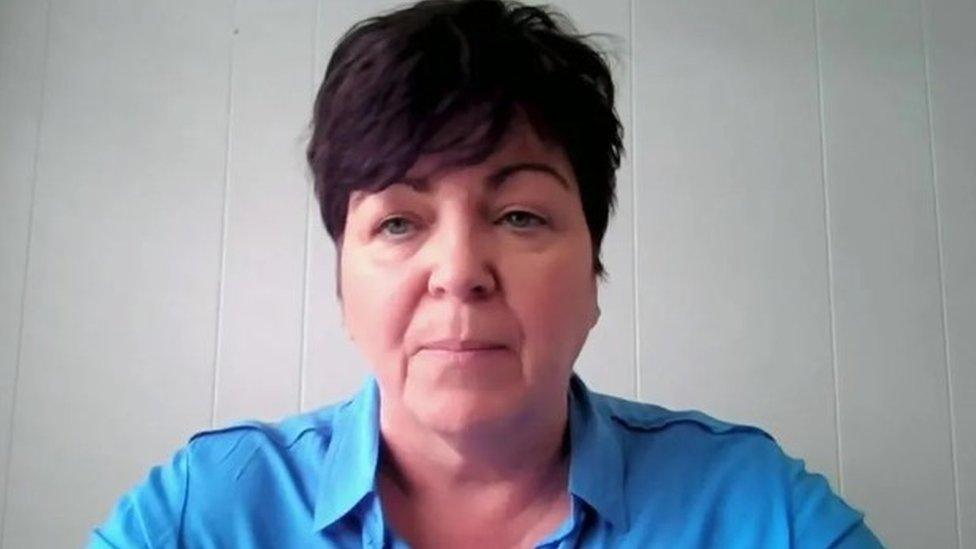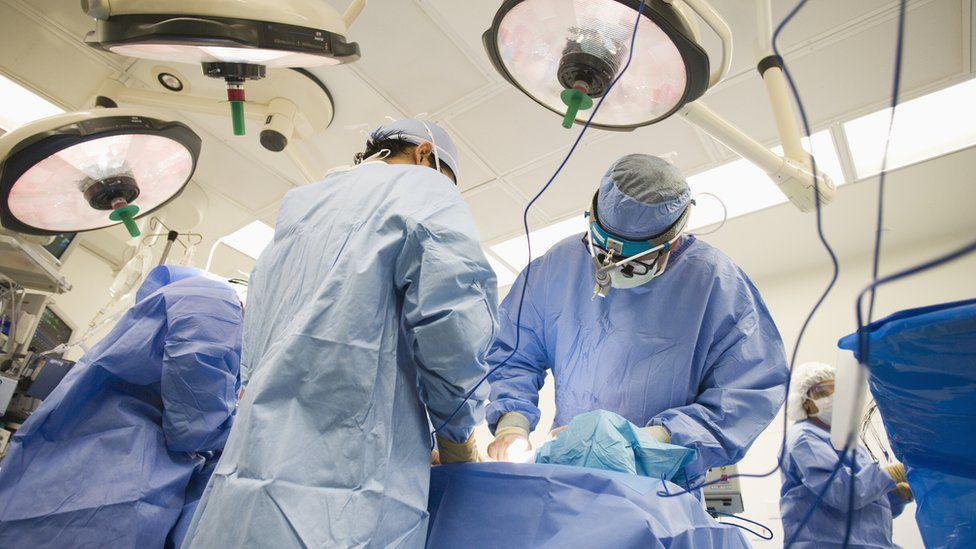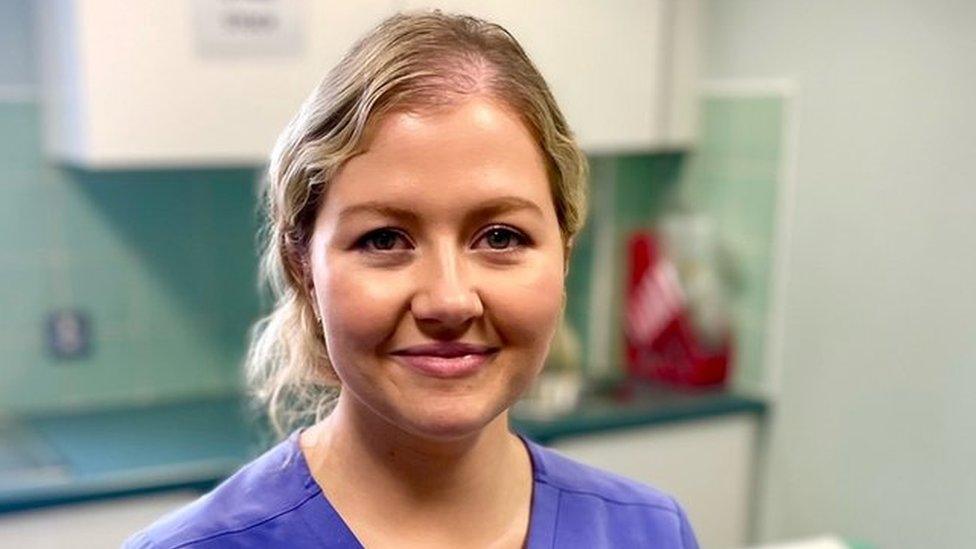Northern Ireland surgeons send out SOS over workload pressures
- Published

A Stormont committee hears waiting lists are so "severe" that patients are coming to harm
The Royal College of Surgeons said it has sent out an SOS due to increasing workloads and workforce problems.
Giving evidence to Stormont's health committee, its director Niall McGonigle said their members have raised concerns about the level of service they are now providing.
He said waiting lists are so severe that patients are coming to harm.
The committee heard that in some cases surgery is no longer possible and there is an increased risk of morbidity.
"To clear the current backlog in orthopaedics would take us to operate all day, seven days a week for about three years, " Mr McGonigle added.
Patients in Northern Ireland "deserve transparency" and an "honest conversation" about how long they will wait for their care to start", Mr McGonigle said.
"As consultant surgeons we know that patients are suffering and are coming to harm due to long delays."

Royal College of Surgeons director Niall McGonigle says members have raised a red flag over the level of service they can now provide
Two significant health reports this week laid bare "catastrophic" waiting times in paediatric care and the state of GP services.
Mr McGonigle said it was a familiar picture across almost every component of the health and social care system with delays causing patients harm.
"Delays cost more both financially and in the wellbeing of patients," Mr McGonigle said.
During his evidence, Mr McGonigle also said that at 17 he received surgery for a chest deformity called pexus excavatum and waited six months for the procedure.
Now, however, young people could be waiting up to a decade for a similar operation, he added.
Mr McGonigle said that the health service is not one that they can be "profoundly proud of" today.
Figures show that from 2014 to 2023 outpatient waiting lists have risen by 216%; inpatients by 147%; and diagnostics by 151%.
Also the equivalent of 26.3% of the population in Northern Ireland is on a waiting list, compared to 12.4% in England and 24% in Wales.
'Burnt out, stressed out'
Committee members also heard that surgeons are not getting enough time in theatres to carry out the scale of elective operations that are required.
They were told this is due to a lack of staff, theatres not being commissioned and some theatres being used for other medical patients or trauma cases.
The committee also heard the workforce is at a "critical point" and, if left unaddressed, will hamper any progress on the waiting lists.
They were told this is having a detrimental impact, with surgeons and their teams being "burnt out, stressed out and straining to get access to theatres".
The most recent statistics also show that there are about 6,000 vacancies that are actively being recruited across the health service with a total 233 consultant, locum, and specialty and associate specialist (SAS) vacancies.
Stormont 'must listen' to front-line staff
The Royal College of Nursing (RCN) called on health committee members to question health policies and strategies.
Rita Devlin, Northern Ireland director of the RCN, said assembly members are in the right place to question and challenge decisions that do not put patients at the heart of the system.

Rita Devlin says Stormont must "start listening to front line staff"
"We must provide ways that bring hope into the picture, hope that things can get better and hope we are fully committed to making things better.
"We must start listening to front-line staff when it comes to modernising and transforming services, our nurses know what works and what doesn't but they are often not engaged around transformation."
Earlier, the Royal College of Surgeons said they had not participated or been consulted on the blueprint document on the reconfiguration of the local hospitals.
The document, which will categorise hospitals as either regional or area hospitals, is due to be published within the next few weeks.
Committee members said they were shocked at the lack of consultation and intend to write to Health Minister Robin Swann about his plans.
Related topics
- Published10 October 2023

- Published15 April 2024

- Published16 April 2024
